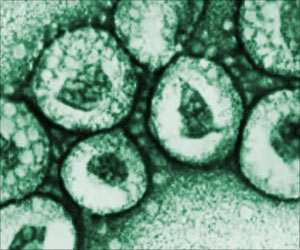The MERS virus appeared in South Korea on May 20 when a 68-year-old man was diagnosed after returning from a trip to Saudi Arabia and now 20 people are dead.

"The outbreak really should serve as a wake-up call for countries," WHO assistant director general Keiji Fukuda said after an emergency committee meeting.
"All countries should always be prepared for the unanticipated possibility of outbreaks like this and other serious infectious diseases," a WHO statement said.
The warning came as alarming reports emerged in South Korea of new cases that had slipped through quarantine measures that already affect thousands.
And on Tuesday, German authorities reported that a national had died after contacting MERS during a trip to Abu Dhabi, but said there was no indication the virus had spread.
The WHO's emergency committee meeting held Tuesday concluded that a lack of awareness about the virus among health workers and the public in South Korea was a major contributing factor to its rapid spread.
Advertisement
-Emergency room spread -
Advertisement
However, the UN health body said that "conditions for a public health emergency of international concern have not been met".
The virus appeared in South Korea on May 20 when a 68-year-old man was diagnosed after returning from a trip to Saudi Arabia.
Fukuda described surveillance footage of the crowded hospital emergency room where he stayed for several days.
"It's clear that the person was coughing a lot and was also mobile in the emergency room. You really get a sense of how one person can lead to so many infections," he said.
South Korea's health ministry said that a 54-year-old woman who died on Wednesday had become the 20th victim of the outbreak. It also reported eight new cases including four infected at the Samsung Medical Center in Seoul, considered the epicenter of the outbreak.
That took the total number of infections including those who have died to 162, the largest outbreak outside Saudi Arabia.
The number of new infections had fallen for three days in a row from 12 on Friday to four on Tuesday, when the ministry said it was cautiously optimistic the worst was over, but the latest number dashed those hopes.
"We think that more new cases can sporadically occur in hospitals other than Samsung," Kwon Joon-Wook, a senior health ministry official, told reporters in Seoul.
- 'Too optimistic' -
Critics say the government's handling of the crisis shows it has done little to improve lax public safety standards since the Sewol ferry disaster in April 2014 which left more than 300 dead and saw the prime minister resign.
Almost all infections so far have been restricted within hospitals, but several patients diagnosed in recent days were not among those put under quarantine.
One patient reported Tuesday in the southeastern city of Daegu developed symptoms on Saturday but continued his normal activities, including going to work and visiting a public bathhouse.
Another patient, a 55-year-old ambulance driver at the Samsung hospital, continued to go to work by subway for days after developing symptoms including fever and came into contact with hundreds of people.
President Park Geun-Hye earlier this week said it was "important to prevent the spread of excessive public anxiety" but the Dong-A Ilbo newspaper slammed the government for playing down the magnitude of the outbreak.
"All the optimistic words and predictions from health authorities have turned out to be wrong so far," it said in an editorial.
There is no vaccine for MERS, which has a mortality rate of 35%, according to the WHO.
Source-AFP











